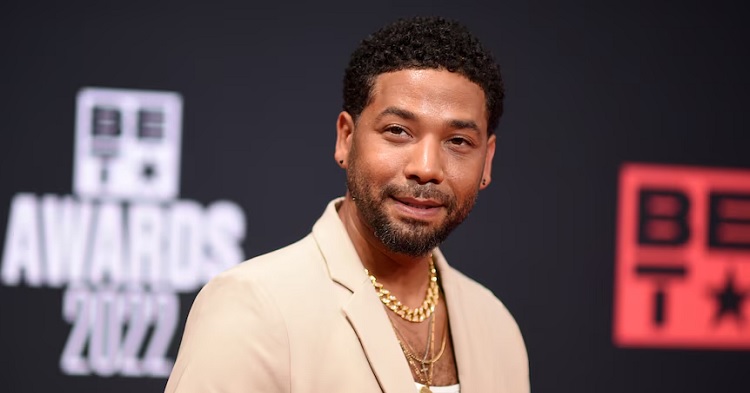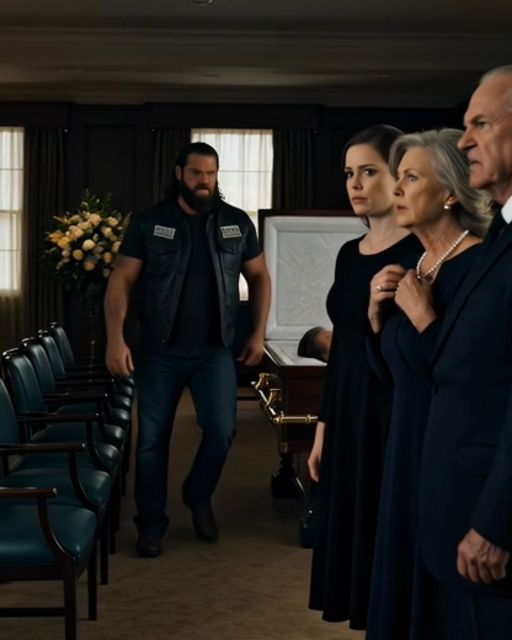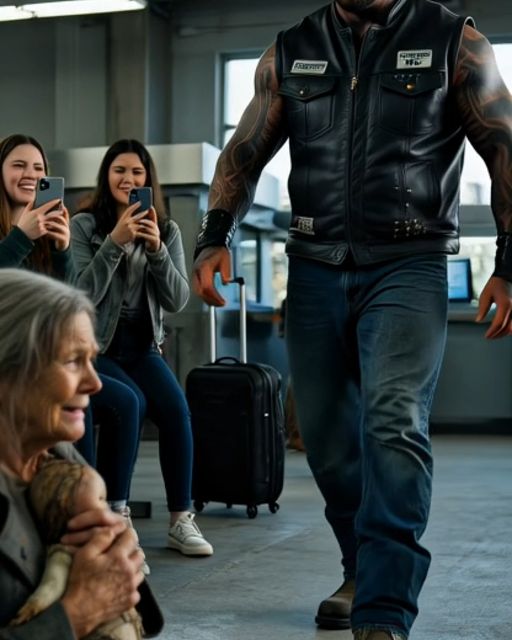In an astonishing turn of events, the Illinois Supreme Court has annulled Jussie Smollett’s conviction for fabricating a racially and homophobically charged hate crime, pointing to a breach of his Fifth Amendment rights. Known for his role in *Empire*, the fallen actor is now free, despite significant evidence indicating his culpability.
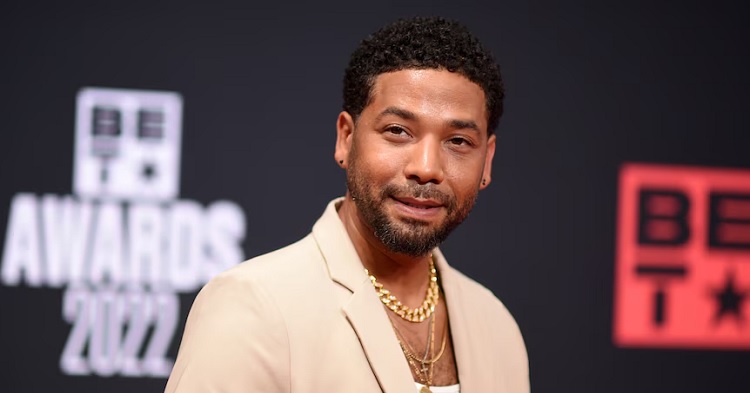
The court found that the decision by a special prosecutor to bring charges against Smollett, after Cook County State’s Attorney Kim Foxx had previously dismissed them, triggered double jeopardy. This procedural nuance has reversed a case that has engaged and fragmented the public for nearly six years.
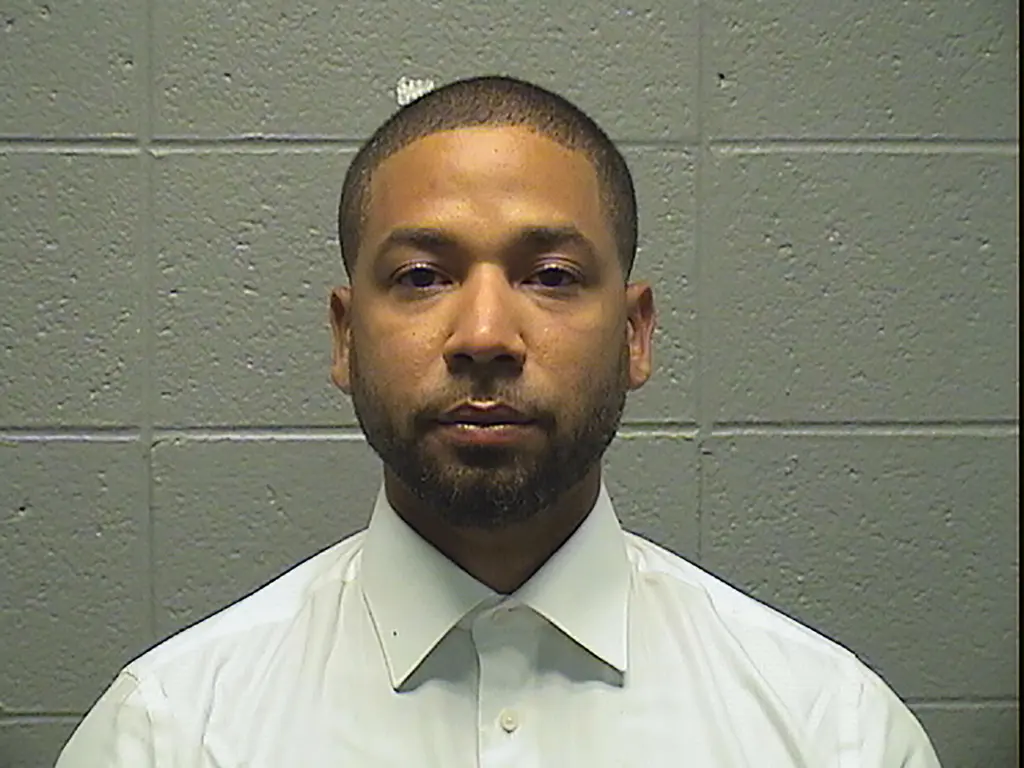
Back in January 2019, Smollett alleged that he was assaulted in downtown Chicago by two individuals wearing “Make America Great Again” hats. According to his account, these attackers shouted racial and homophobic insults, hung a noose around his neck, and covered him in bleach, all while proclaiming, “This is MAGA country.”
The startling allegations captured national attention, prompting support from several left-wing politicians and celebrities. However, as the investigation unfolded, Smollett’s narrative began to crumble. Investigators disclosed that he had, in fact, orchestrated the hoax by hiring two brothers, Abimbola and Olabinjo Osundairo, to carry out the staged attack to boost his public image.
The Chicago police later discovered that Smollett, who was making $100,000 per episode of *Empire* at the time, had manufactured the incident due to dissatisfaction with his salary. The fictitious scenario led to a $130,000 cost in resources for the city during the investigation.
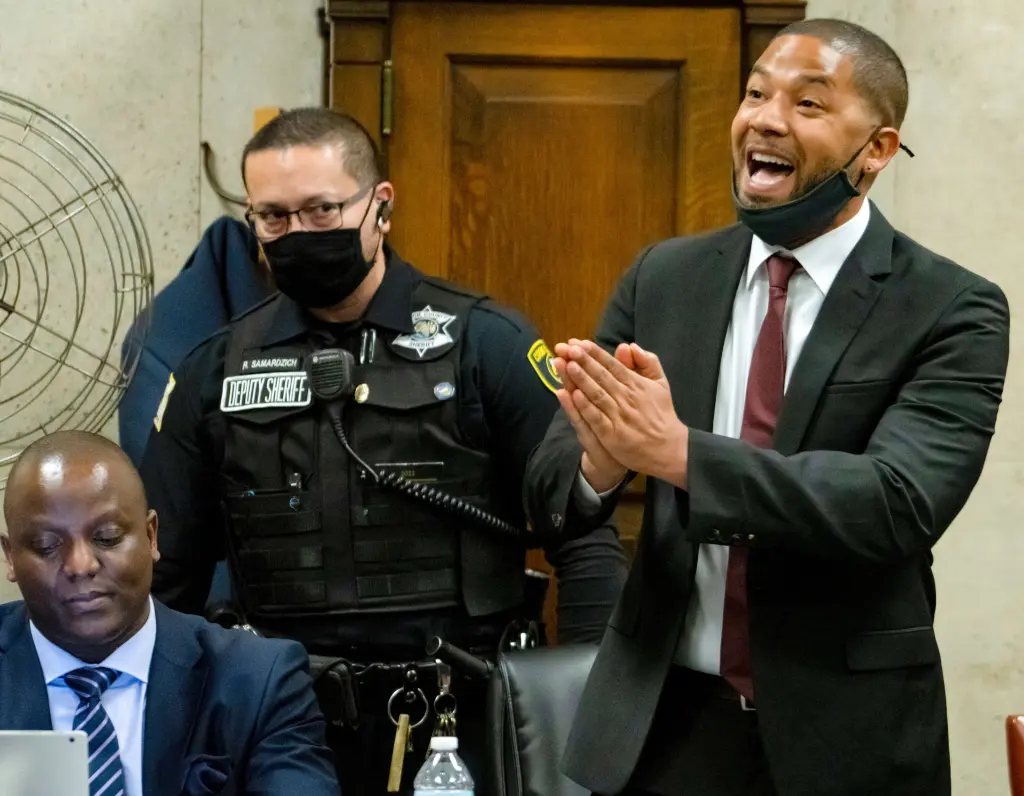
Even after his conviction in 2021 on five felony counts of disorderly conduct related to falsely reporting the incident to the police, Smollett has consistently claimed innocence, asserting that he was the target of a politically and media-driven vendetta. In March 2022, he was sentenced by Judge James Linn to five months in jail, along with 30 months of probation, and was ordered to pay $120,000 in restitution to the city of Chicago.
During sentencing, Judge Linn stated, “You’re not the victim of a racist hate crime or a homophobic hate crime. You’re simply a fraud pretending to be the victim of a hate crime, and it’s disgraceful.”
Despite this, Smollett was released after just five days in jail while awaiting his appeal. This week, the Illinois Supreme Court overturned his conviction, ruling that Cook County’s original decision to drop the charges should be considered conclusive.
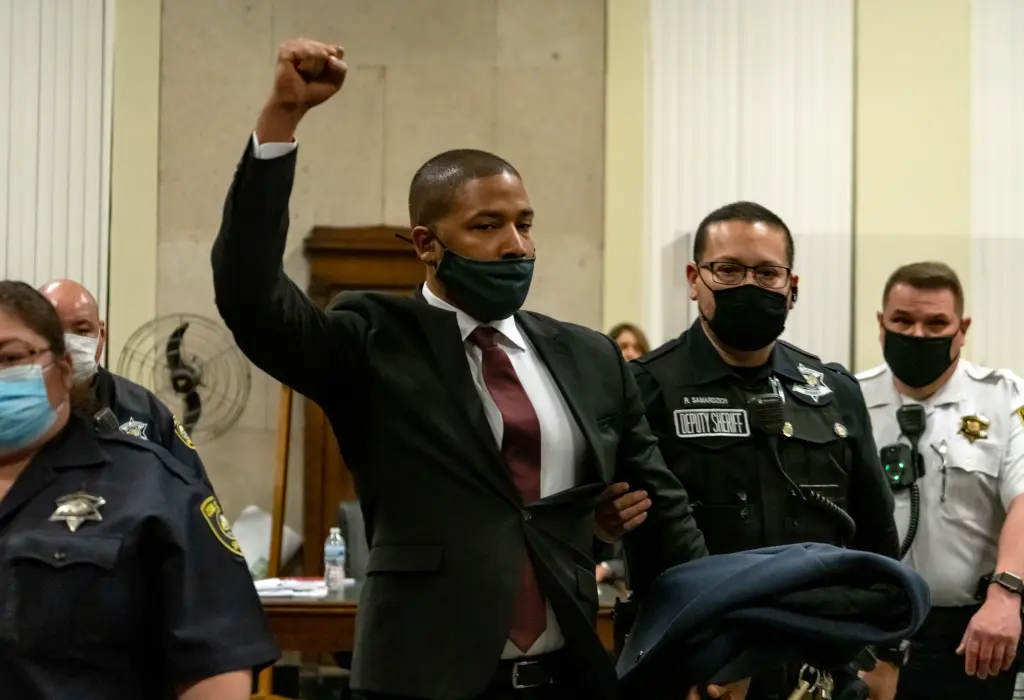
This ruling has sparked renewed anger, especially among conservatives who argue that the Smollett case exemplifies a flawed justice system that favors celebrities and succumbs to political forces.
The case also casts a spotlight on Kim Foxx, the beleaguered Cook County State’s Attorney. Her initial decision to drop 16 felony charges against Smollett in exchange for 16 hours of community service and a forfeited $10,000 bond drew widespread criticism. Former Chicago Mayor Rahm Emanuel famously termed the decision “a whitewash of justice.”
Foxx recused herself from the case after it was revealed she had been in contact with Smollett’s family and a former chief of staff for Michelle Obama prior to the charges being dropped. This led to the appointment of a special prosecutor, who filed new charges against Smollett, leading to his conviction.
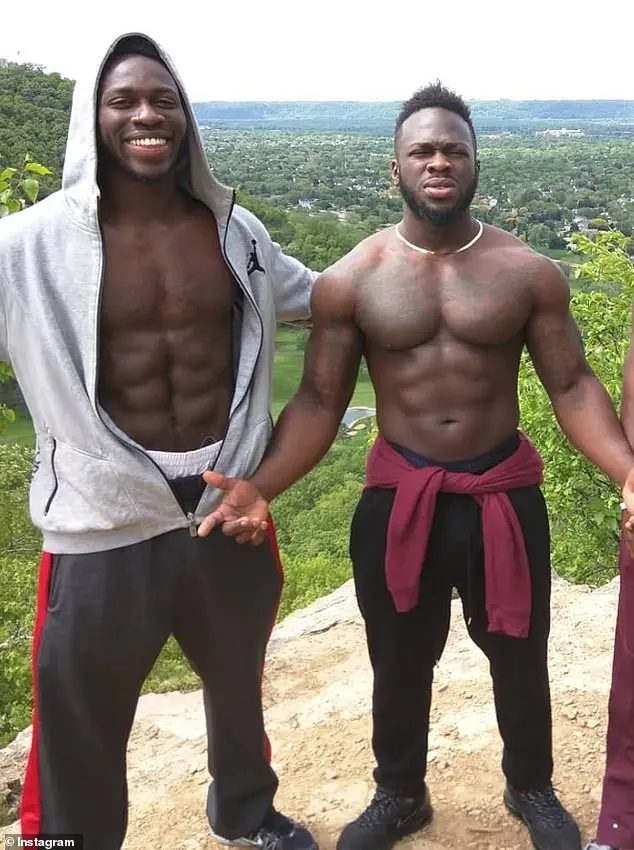
The Illinois Supreme Court’s unanimous 5-0 ruling to overturn Smollett’s conviction, issued by a panel of five Democrats and two Republicans, has reignited debate over Foxx’s handling of the case and her connections with political figures.
Special prosecutor Dan Webb, who managed Smollett’s second trial, highlighted that the court’s ruling should not be mistaken as an exoneration of the actor.
In a statement, Webb noted, “Today’s decision has nothing to do with Mr. Smollett’s innocence. The Illinois Supreme Court found no fault with the substantial evidence presented at the trial or the jury’s unanimous judgment.”
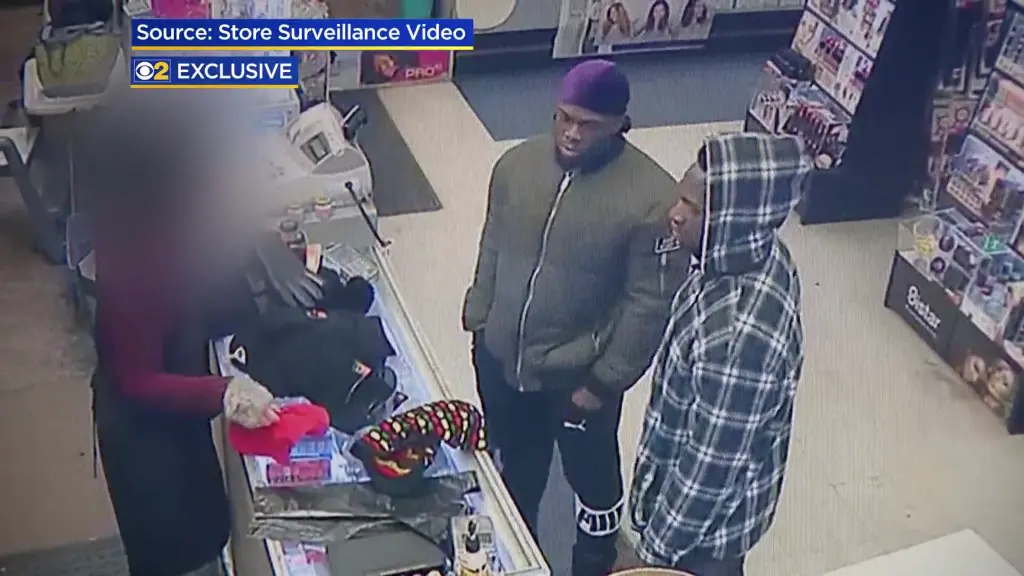
Justice Elizabeth Rochford, speaking for the court, argued that it was unjust for Smollett to agree to a settlement believing charges were settled only to be prosecuted again later. Detractors contend this decision exemplifies how celebrity clout can impact the justice system.
The episode with Smollett exposed significant cultural and political schisms in the United States. Initially, many on the left accepted the incident as indicative of an increasing wave of hate during President Trump’s tenure. High-profile individuals such as Kamala Harris and Joe Biden quickly offered their support, only to quietly retract their statements when the truth emerged.
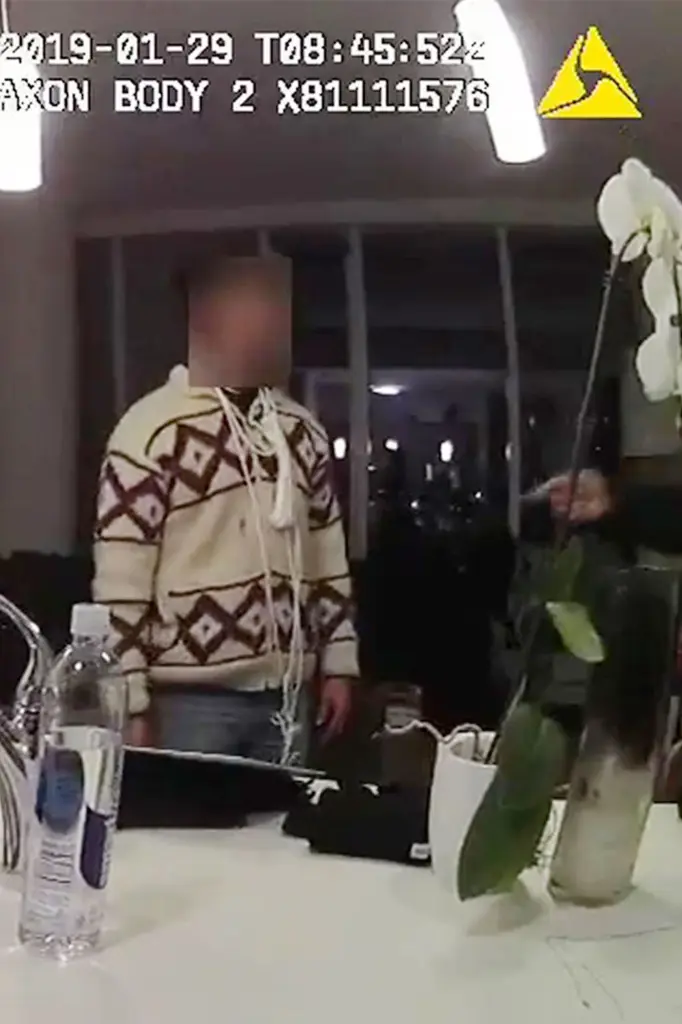
This case also underscores the media’s role in advancing narratives that fit specific agendas, at times overlooking inconvenient truths. Smollett’s hoax, viewed by many conservatives as a deliberate effort to tarnish Trump supporters, has damaged public trust.
The resolution favoring Smollett on a procedural technicality imparts a worrying lesson: with sufficient connections and media strategy, even the most flagrant falsehoods can sidestep accountability. While justice remains elusive for the taxpayers of Chicago and the numerous genuine victims of hate crimes, Smollett continues to enjoy the perks of fame, seemingly unaffected by the repercussions of his actions.
For many Americans, this situation serves as a stark reminder of a dual-tiered justice system—one for the elite and another for the general populace.
